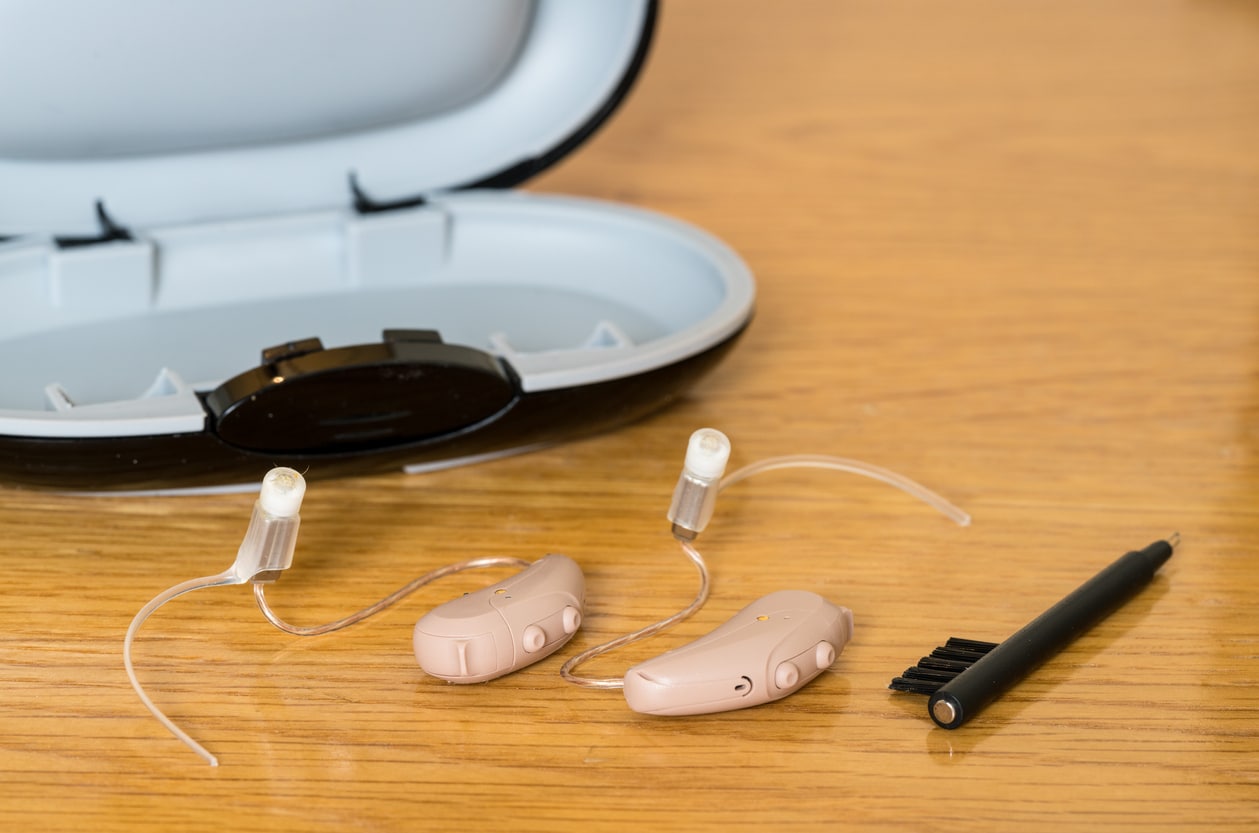Approximately 15% of U.S. adults have hearing loss. When you live with hearing loss, your hearing aids play a vital role in supporting your overall health, so it’s essential to keep them in good condition. Much like you schedule routine maintenance for your car, such as oil changes and tune-ups, hearing aids also need regular attention to function properly.
To help keep your hearing aids in excellent working order for years to come, here’s a daily and annual maintenance guide.
Daily Maintenance Checklist

These daily steps will help ensure your hearing aids continue to perform at their best.
Clean with a Soft, Dry Cloth
Hearing aids, like most electronic devices, should be kept away from moisture. To clean them, use a soft, dry cloth to gently wipe them down. This helps prevent damage and keeps them looking and functioning like new.
Check Your Battery Life
Your hearing aids rely on batteries to function, but unlike regular batteries, the zinc-air batteries used in hearing aids can lose their charge quickly and without much warning. Testing the battery each morning ensures you’re prepared. If needed, carry extra batteries with you to avoid interruptions.
Inspect for Earwax
Throughout the day, your hearing aids are exposed to earwax, dirt and other debris while sitting in your ears. Earwax is particularly troublesome, as it can block the speaker and lead to weak or muffled sounds. Regularly check and clean your hearing aids to ensure optimal performance.
Store Properly
When your hearing aids aren’t in use, always store them in their protective case. To reduce moisture buildup, leave the battery compartment open overnight. Some people opt to use a dehumidifier designed for hearing aids to provide extra protection from moisture.
Annual Maintenance Checklist
In addition to daily care, performing these yearly tasks will help extend the life of your hearing aids.
Schedule a Hearing Test
Hearing loss can change over time, much like your vision. To ensure your hearing aids are still meeting your needs, schedule an annual hearing test. This allows your audiologist to adjust your devices based on any changes in your hearing ability.
Have Your Hearing Aids Inspected
While you’re in for a hearing test, it’s a good idea to have your hearing aids checked by a professional. This provides an opportunity to detect any issues early and address them before they affect your device’s performance.
For more information about maintaining your hearing aids or to book an appointment, contact Augusta – Aiken ENT & Allergy today.